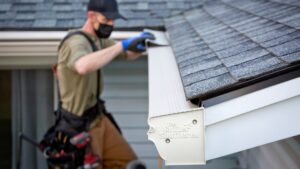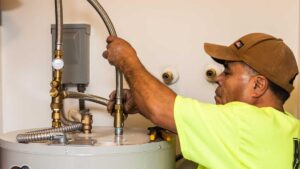When it comes to home maintenance, few things are as crucial as ensuring your home is safe from hidden gas leaks. They’re sneaky, dangerous, and can turn your cozy abode into a ticking time bomb. But don’t worry! With some expert tips and a little bit of vigilance, you can keep your home safe and sound. Let’s dive into the world of hidden gas leaks and how to spot them like a pro.
Why Gas Leaks Are a Big Deal
First, let’s get real about why gas leaks are a big deal. Natural gas is a common energy source for heating, cooking, and even drying clothes. However, it’s also highly flammable and can pose serious health risks if inhaled. Leaking gas can lead to explosions, fires, and carbon monoxide poisoning. Yikes! That’s why it’s essential to catch leaks early before they turn into full-blown disasters.
Signs of a Hidden Gas Leak
You don’t need to be a pro to spot potential gas leaks. Here are some telltale signs to keep an eye (and nose) out for:
- The Smell of Rotten Eggs: Natural gas is odorless, but utility companies add a sulfur-like odor to help you detect leaks. If you catch a whiff of rotten eggs, take it seriously.
- Hissing Sounds: A hissing or whistling noise near your gas appliances or pipes can indicate a gas leak. Don’t ignore these sounds.
- Dead Plants: If you notice dead or dying plants near gas lines, it could be due to a leak. Gas can displace oxygen in the soil, killing vegetation.
- Bubbles in Water: If you see bubbles forming in puddles or wet areas around your yard, it might be due to a gas leak underground.
- Health Symptoms: Headaches, dizziness, nausea, and difficulty breathing can all be symptoms of gas exposure. If multiple people in your home experience these symptoms, it’s time to investigate.
Pro Tips for Finding Hidden Gas Leaks
Now that you know the signs, let’s talk about how to find hidden gas leaks like a pro.
Use Your Senses
Your senses are your first line of defense. If you smell gas, hear a hissing sound, or notice any of the other signs mentioned, trust your instincts and take action immediately.
Conduct a Soapy Water Test
This is a simple yet effective method to detect gas leaks. Mix a solution of dish soap and water, and apply it to gas pipes and connections using a brush or spray bottle. If you see bubbles forming, you’ve found a leak. This method works best on accessible pipes and connections, so don’t be afraid to get a little hands-on.
Check Gas Appliances
Regularly inspect your gas appliances for signs of wear and tear. Look for loose connections, cracks, or corrosion. Ensure that the pilot light is steady and blue, not flickering or yellow. If you spot any issues, it might be time to call in a pro for a thorough inspection.
Monitor Your Gas Bill
A sudden spike in your gas bill without a corresponding increase in usage can be a red flag. If you notice an unexplained increase, it’s worth investigating further to rule out a hidden leak.
Install Gas Leak Detectors
Investing in gas leak detectors can provide an extra layer of safety. These devices can detect gas in the air and alert you with an alarm. Place them near gas appliances and in other high-risk areas to ensure you’re covered.
Call the Pros
When in doubt, call the pros. Licensed gas fitters and plumbers have the tools and expertise to detect and fix gas leaks. Regular inspections by professionals can give you peace of mind and keep your home safe.
Preventative Measures
Prevention is always better than cure. Here are some steps you can take to minimize the risk of gas leaks:
- Regular Maintenance: Schedule regular maintenance for your gas appliances and systems. Professionals can spot potential issues before they become serious problems.
- Proper Installation: Ensure that all gas appliances are installed correctly by qualified professionals. Improper installation is a common cause of gas leaks.
- Ventilation: Make sure your home is well-ventilated, especially in areas where gas appliances are used. Proper ventilation can help disperse gas in the event of a leak.
- Educate Your Family: Teach your family members about the signs of gas leaks and what to do in an emergency. Make sure everyone knows how to shut off the gas supply and where the main gas valve is located.
What to Do If You Detect a Gas Leak
If you suspect a gas leak, it’s crucial to act quickly and calmly:
- Don’t Panic: Stay calm and avoid causing a spark. Don’t use electrical appliances, light matches, or turn on lights.
- Ventilate: Open windows and doors to allow gas to disperse.
- Evacuate: Get everyone out of the house immediately.
- Shut Off the Gas: If it’s safe to do so, turn off the main gas valve. This is usually located near your gas meter.
- Call for Help: Once you’re safely outside, call your gas company or emergency services. Do not re-enter your home until professionals give the all-clear.
Wrapping Up
Finding hidden gas leaks might seem daunting, but with these tips, you can tackle it like a pro. Remember, safety first! Keep your senses sharp, conduct regular checks, and don’t hesitate to call in the experts. With a little vigilance and proactive maintenance, you can enjoy a safe, gas-leak-free summer. Happy home maintaining!









